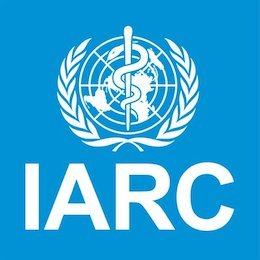A little more than a year ago, Crop Protection News reported that the U.S. Environmental Protection Agency (EPA) contradicted claims by the International Agency for Research of Cancer (IARC) on whether or not the herbicide glyphosate is a carcinogen.
Now, IARC is being called on the carpet by an unusual source: Mother Jones magazine.
Glyphosate is a widely used herbicide manufactured by Monsanto — and commonly sold under the brand, “RoundUp.”
As Crop Protection News reported last May, the EPA's Cancer Assessment Review Committee (CARC) came to the conclusion following an in-depth analysis of several dozen published and unpublished scientific studies of the weed killer. The report completed in October 2015 was inadvertently released to the public in April 2016.
According to the report, “the epidemiological studies in humans showed no association between glyphosate exposure and cancer of the following: oral cavity, esophagus, stomach, colon, rectum, colorectum, lung, pancreas, kidney, bladder, prostate, brain (gliomas), soft-tissue sarcoma, leukemia, or multiple myelomas.”
Last week, Mother Jones published a scathing article claiming IARC didn’t “have all the facts’” before it published its report naming glyphosate a “probably carcinogen.”
“According to a new Reuters investigation, Aaron Blair, the scientist who led the IARC’s review panel on glyphosate, had access to data from a large study that strongly suggested that Roundup did not cause cancer after all—but he withheld that data from the RoundUp review panel,” writes Mother Jones’ Kiera Butler. “Weirder still: Blair himself was a senior researcher on that study.”
The Reuters investigation mentioned by Butler found that “Blair knew the unpublished research found no evidence of a link between glyphosate and cancer” and Blair “also said the data would have altered IARC’s analysis.
“He said it would have made it less likely that glyphosate would meet the agency’s criteria for being classed as ‘probably carcinogenic,’” writes Reuters' Kate Kelland. “But IARC, a semi-autonomous part of the World Health Organization, never got to consider the data.”
“The agency’s rules on assessing substances for carcinogenicity say it can consider only published research – and this new data, which came from a large American study on which Blair was a senior researcher, had not been published,” continued Kelland.
Reuters’ investigation centered on documents from a pending court case in which 184 California plaintiffs filed suit against Monsanto over the company’s alleged failure to warn them about the carcinogenic risks of glyphosate.
That lawsuit, as well as a host of other similar suits, hinged on the IARC claims that glyphosate caused cancer.
Mother Jones reports that “there are no signs of IARC backing off its conclusion that RoundUp causes cancer,” but it wouldn’t be the first time that the agency has had to reverse course.
In 2016, IARC reversed its 1991 claim that classified coffee as a carcinogen. As is the case with glyphosate, IARC’s coffee claims have contributed to litigation against Starbucks and other companies.
As far as the long-term implications of IARC’s reversals, Hank Campbell writes for the American Council on Science and Health that it’s “bad for people who want to trust IARC’s recommendations.”
“Its reasons to reverse course on coffee are no more valid than its reason to have declared it possibly carcinogenic to humans in the first place,” continues Campbell. “And the coffee claims are no more valid than any other claims the agency has made about the hazards of common things.”
Among those “other claims” include glyphosate.
Even though IARC tells Reuters that it has no plans to reverse its carcinogenic claims on glyphosate, the findings in Reuters investigation could have the same impact as the coffee reversal — calling into question the validity of any one of IARC’s claims.




 Alerts Sign-up
Alerts Sign-up